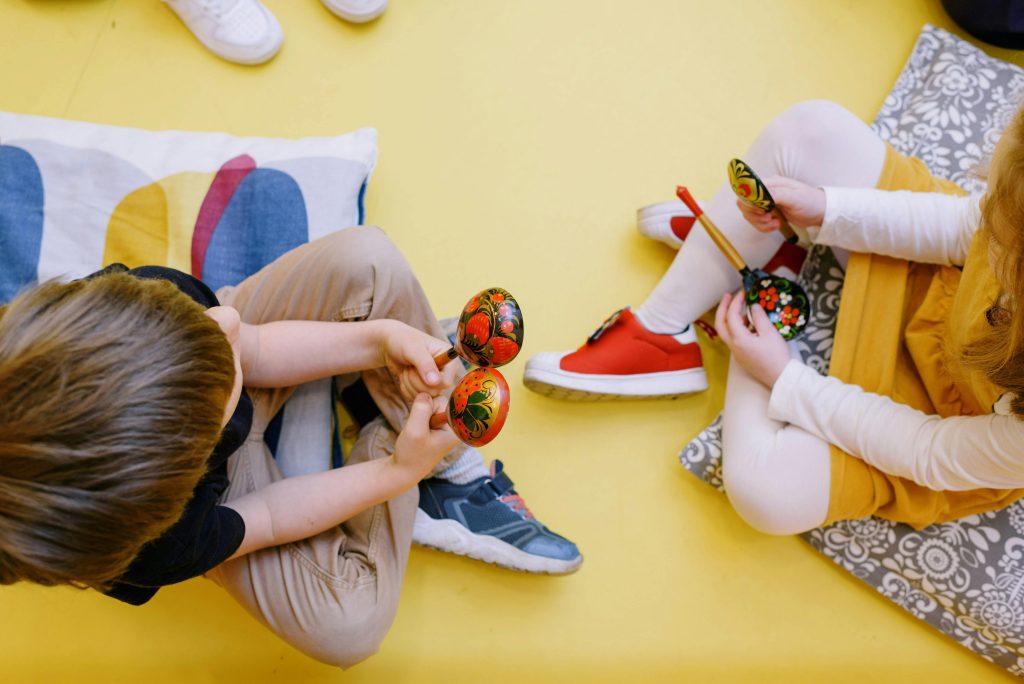We understand that music is a powerful tool for early childhood development. From improving language skills to boosting emotional well-being, music plays a crucial role in shaping young minds. Here’s why incorporating music into early learning is so beneficial for little learners.
1. Enhances Language and Communication Skills
Songs and rhymes help children develop vocabulary, rhythm, and pronunciation. Singing nursery rhymes like Twinkle, Twinkle, Little Star or Old MacDonald Had a Farm helps children learn new words while reinforcing sentence structures.
2. Improves Memory and Cognitive Skills
Music engages multiple areas of the brain, strengthening memory and recall. Repetitive songs help children remember patterns, sequences, and concepts—making learning fun and effective!
3. Encourages Emotional Expression and Social Development
Music allows children to express their emotions freely. Whether through singing, dancing, or playing an instrument, children can explore feelings of joy, excitement, or calmness. Group activities like singing in a circle also promote teamwork, turn-taking, and social interaction.
4. Boosts Motor Skills and Coordination
Clapping, dancing, and playing instruments like tambourines or shakers help develop fine and gross motor skills. Engaging in rhythmic movements strengthens coordination and body awareness, supporting overall physical development.
5. Creates a Positive Learning Environment
Music fosters a sense of joy and enthusiasm in learning. Background music can help set a calm atmosphere, while energetic songs encourage movement and engagement. Integrating music into daily routines can make transitions (like clean-up time or nap time) smoother and more enjoyable.
At Little Big People, we believe in the power of music to inspire, educate, and uplift young minds. Whether through singing, movement, or instrumental play, incorporating music into early learning provides endless benefits that shape confident, well-rounded children!

